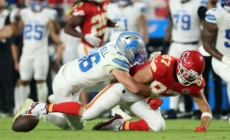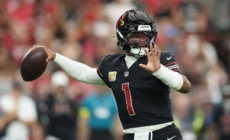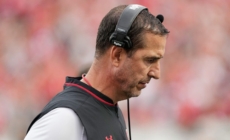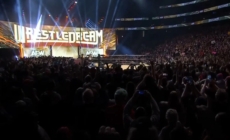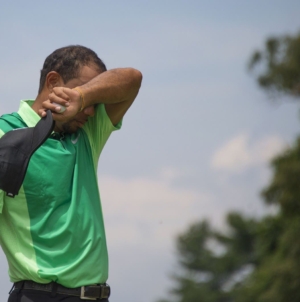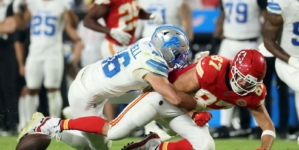-
Tiger Woods’ Biggest Career Regret Revealed as Injury Debate Returns - 16 mins ago
-
How Baby Boomers Blew Up the American Dream - 46 mins ago
-
Lions Star Thumbs His Nose at NFL’s Warning Ahead of Buccaneers Game - 51 mins ago
-
Cardinals Get Major Update on Kyler Murray’s Return Timeline - about 1 hour ago
-
The Burden Placed on Sexual Abuse Survivors - 2 hours ago
-
WWE Legend Makes Stunning Return at AEW WrestleDream 2025 - 2 hours ago
-
Vance Flexes the Marines’ Might as Thousands Protest Trump’s Agenda - 2 hours ago
-
Wisconsin AD Made Decision on Luke Fickell Clear to Players - 3 hours ago
-
Police declare ‘unlawful assembly’ at downtown L.A. protest - 3 hours ago
-
‘Don’t Touch My Retirement!’ Wins the Day in France - 3 hours ago
US Embassy Issues Alert in Trinidad and Tobago Amid Venezuela Conflict
The U.S. Embassy in Trinidad and Tobago issued a security alert Saturday, instructing American citizens to avoid all U.S. government facilities through the holiday weekend due to a “heightened state of alert.”
The embassy urged residents to “be aware of your surroundings” but did not specify the exact nature of the threat. The warning comes as tensions between the United States and Venezuela escalate dramatically following a series of American military strikes in Caribbean waters targeting suspected drug trafficking vessels.
Venezuela’s top envoy to the United Nations, Samuel Moncada, delivered a scathing address Thursday, accusing the U.S. of conducting unlawful attacks that kill civilians and threaten regional stability.
Why It Matters
The security alert reflects genuine concern about potential threats to American personnel and citizens in a region caught between escalating U.S. military operations and Venezuela’s fierce opposition.
Trinidad and Tobago, located just miles from Venezuela, sits at the intersection of this geopolitical conflict. The warning underscores how U.S. military actions in the Caribbean are generating serious security implications beyond their stated counternarcotics mission.
The alert also affects American residents and visitors during Diwali, a significant Hindu festival widely celebrated in Trinidad and Tobago, where approximately 35 percent of the nation’s 1.4 million residents identify as East Indian.
What To Know
Trinidad and Tobago’s Minister of Homeland Security, Roger Alexander, told the Associated Press that the alert is based on reported threats directed at American citizens and that these threats “could be linked” to ongoing regional tensions. However, authorities declined to share specific details about the nature of the threats.
Since early September, six U.S. military strikes have killed at least 29 people, including citizens of Colombia and Trinidad and Tobago. Venezuela claims the operations violate international law and constitute extrajudicial executions.
President Donald Trump’s administration characterizes suspected drug traffickers as unlawful combatants and justifies the operations as part of an expanded counternarcotics mission. On Thursday, the U.S. military carried out a new strike on a suspected drug vessel, marking the first reported instance of survivors among crew members in the series of strikes over the past two months.
Moncada formally petitioned the U.N. Security Council to declare U.S. military operations near Venezuelan waters illegal. He accused Washington of conducting “clandestine CIA operations designed to commit political murders,” referencing Trump’s public confirmation that he authorized the CIA to conduct covert operations inside Venezuela.
Trump stated Wednesday that the U.S. was “looking at land now, because we’ve got the sea very well under control,” adding, “I think Venezuela is feeling heat.”
What People Are Saying
Venezuela’s Ambassador to the U.N. Samuel Moncada: “There is a killer prowling the Caribbean, bloodthirsty, looking for wars.”
President Donald Trump: “We are looking at land now, because we’ve got the sea very well under control, I think Venezuela is feeling heat.”

What Happens Next
The U.N. Security Council convened this week at Venezuela’s, Russia’s, and China’s request to discuss the crisis, but no resolution is expected given Washington’s veto authority.
U.S. military operations continue in the southern Caribbean, with Trump’s indication of expanded land-based actions suggesting further escalation. The security alert in Trinidad and Tobago remains in effect through the holiday weekend.
Reporting from the Associated Press contributed to this article.
Source link




